NEWS
CSR Relay Column Vol.2 “Football and SDGs: Creating a future where no one gets left behind” - Committee for Social Responsibility Member KURODA Kaori
15 August 2019
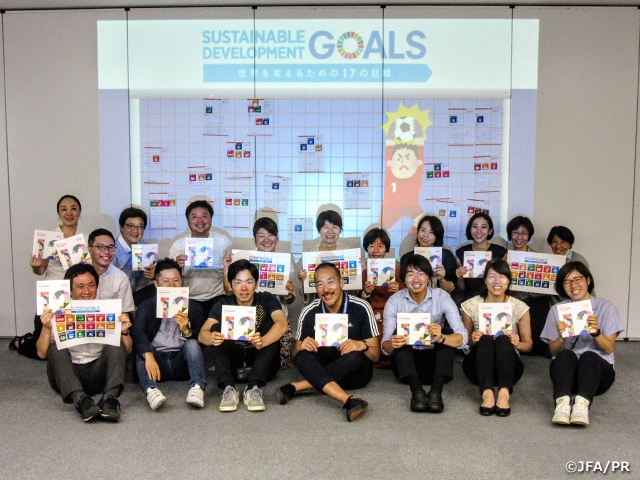
As the sole organisation that presides over the sport of football in Japan, the JFA has established their principle as follows: "Through football, we realise the full benefits that sports can bring to our lives the soundness of our bodies, the expansion of our minds, and the enrichment of our societies." Consisted by five experts in the field of corporate social responsibility (CSR), the Committee for Social Responsibility is one of JFA's Expert Committees that covers “how” the JFA can contribute to the society.
In order to share the activities carried out by the Committee for Social Responsibility, we have started a relay column by the members of the committee. As our second relay column, we will share the article on “Football and SDGs,” written by our fellow member KURODA Kaori, who is also the executive director of CSO Network.
Vol. 2: Committee for Social Responsibility Member KURODA Kaori
Contributing to achieve SDGs through Sports
In the recent years, we have been seeing an international momentum towards building a sustainable future through sports. With less than one year left until the Tokyo 2020 Summer Olympics and Paralympics, it has been stated that, “through this Olympics, we will contribute to the United Nations' Sustainable Development Goals (SDGs), which is our world’s common goal.”
The Olympic and Paralympic Movement and Sustainability
In 2015, the United Nations General Assembly adopted the 2030 Agenda for Sustainable Development, which contained a set of 17 SDGs and 169 targets. The Agenda strives to eliminate poverty and to pass on a sustainable world to the future generations. The main principle of the SDGs is based on respect for human rights, such as social inclusion and gender equality, where they state that, “No one will be left behind.”
Paragraph 37 of the Agenda states the role of sport in achieving the SDGs, as sport is not only able to contribute to world peace, health, education, social inclusion, but it also gives the opportunity for the individuals to strengthen their involvement with the community, regardless of their gender and age.
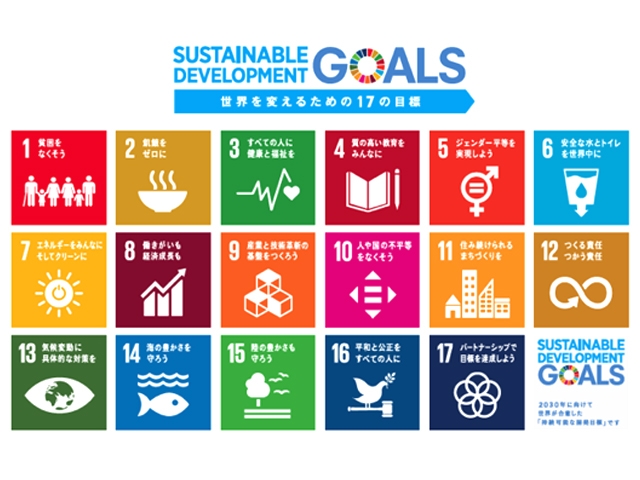 (From the website of United Nations Information Centre)
(From the website of United Nations Information Centre)
Football and SDGs
Among all sports, football was one of the first sport to take action towards sustainability and respect for human rights, as FIFA’s Secretary General Fatma SAMOURA made a statement on FIFA’s commitment towards achieving the SDGs through football.
FIFA has made tireless efforts to eliminate racism and violation of human rights from the game of football. When infringements on the human rights of the construction workers were reported at the 2018 FIFA World Cup Russia and the upcoming 2022 World Cup in Qatar, FIFA responded by setting a human rights policy to protect the rights of the construction workers, as well as to prevent racism and violation of human rights towards the players. FIFA has also announced their first human rights report in November 2017.
At the FIFA Council meeting held this June, FIFA made amendments on their disciplinary code to reinforce zero tolerance of racism and discrimination. JFA has also announced their “The Declaration – Ensure Safety of Football Family” this May. In order to realise zero tolerance and to protect children from abuse, football has taken many actions to eliminate physical and verbal abuse.
Football clubs around the world have also contributed in their own ways to achieve the SDGs, so that “No one will be left behind.” The FC Barcelona Foundation has taken action towards school bullying, while the Real Madrid Foundation has conducted educational and cultural activities, as well as social welfare services. In England, Chelsea Football Club has carried out educational programmes to spread awareness on equality and racism, as well as to teach the value of friendship and teamwork at schools.
Actions taken in Japan
In Japan, JFA and J.League clubs have announced their contributions towards achieving the SDGs.
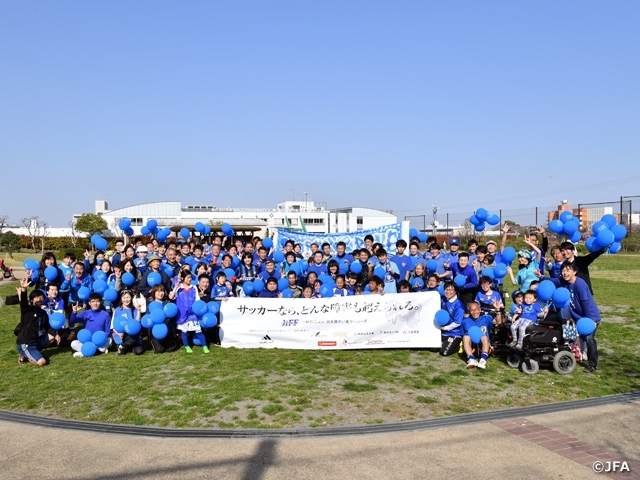
With the support of JFA, the Japan Inclusive Football Federation (JIFF) has supported seven member organizations, including the Japan Blind Football Association. Their main principle is to, “share the value of sports through football, whether they are with or without disabilities, and to contribute towards building a society where individuality is respected.” I believe that their presence truly follows the principle of, “No one will be left behind.”
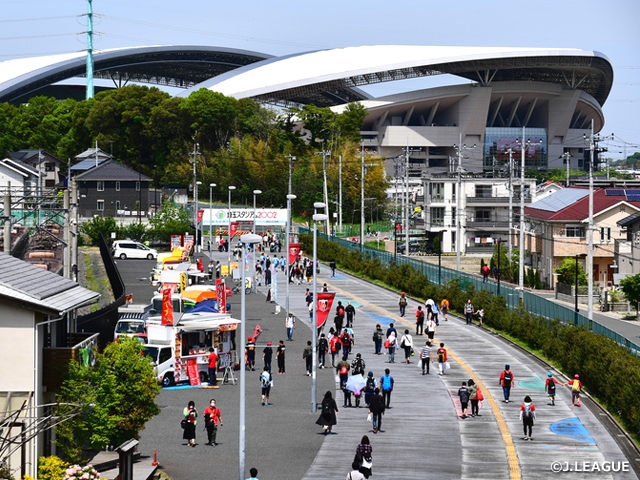
This July, Urawa Red Diamonds has declared their participation towards the SDGs. The J.League has made amendments to their community cooperation activities to comply with the SDGs. Starting from 2014, they have also adapted an action programme, “Zero tolerance,” in efforts to eliminate discrimination. We sincerely hope that these activities will spread through other sports, including the Tokyo 2020 Summer Olympics.
Lastly: In efforts to create a future where no one gets left behind
Football has an immeasurable power that fascinates people all over the world. We hope to see more people get involved in thinking and solving the social issues through the sport of football, beyond the boarders and ethnicities. Through this movement, we strongly hope to create a sustainable future where everyone gets excepted.
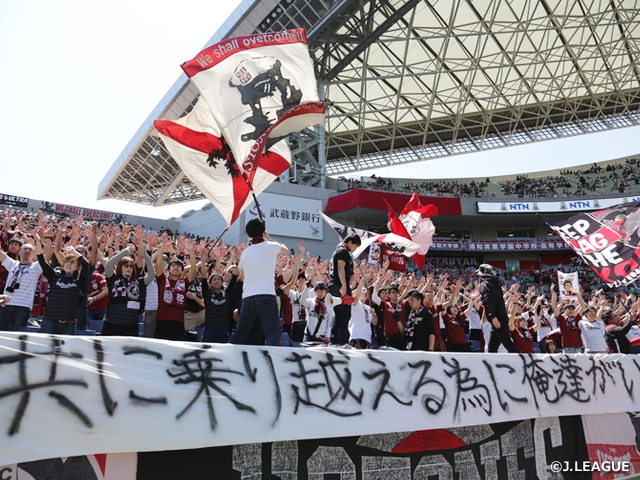
Latest News
-
National Teams
2026/01/13
U-17 Japan Women's National Team squad & schedule - Portugal Tour (1/17-29@Lisbon, Portugal)

-
National Teams
2026/01/07
Japan Futsal National Team squad & schedule - AFC Futsal Asian Cup™ Indonesia 2026 (1/15-2/8@Jakarta, Indonesia)

-
National Teams
2025/12/28
U-23 Japan National Team squad & schedule - AFC U23 Asian Cup Saudi Arabia 2026™ (12/30-1/26@Jeddah, Saudi Arabia)

-
Respect and fair play
2025/12/23
Respect Other Nations’ Football Cultures – Always Have Respect Vol.151

-
National Teams
2025/12/15
Japan Beach Soccer National Team squad & schedule - Training Camp (12/17-20@Okinawa)



